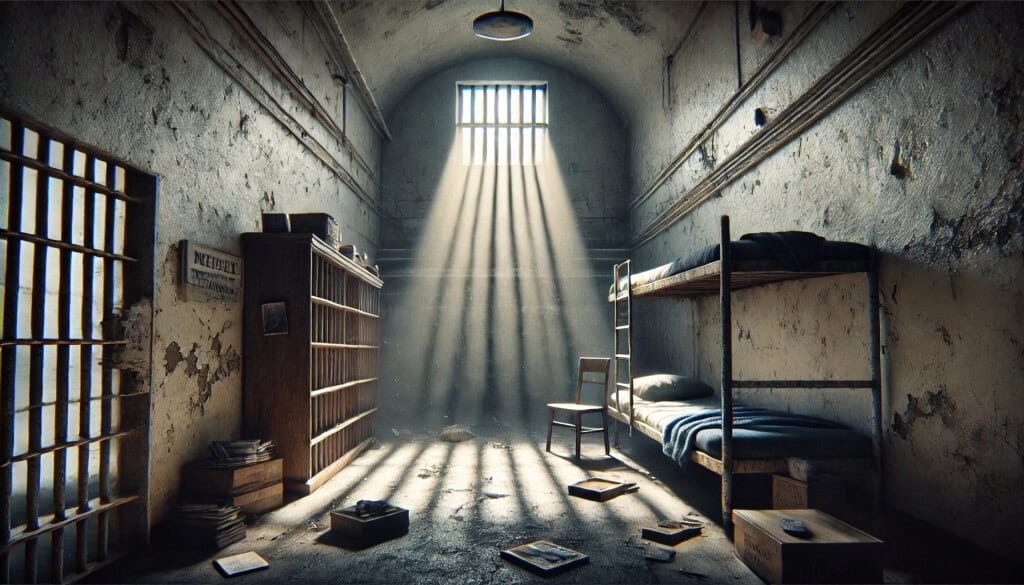
Introduction
On a warm June afternoon, Christian Krauch lay under his bunk in a Macon State Prison dorm, his body barely recognizable. His injuries spoke of horrors few could imagine—several brain bleeds, broken ribs, slashed feet, cigarette burns, and a necrotic wound the size of a saucer on his thigh. By the time he was found, weeks of relentless torture had left him fighting for his life on a ventilator. His story is not an anomaly; it is a harrowing reflection of the violence and neglect that plague Georgia’s prison system.
In a different corner of the state, Almir Harris, a young man with autism and type 1 diabetes, entered Baldwin State Prison with hopes of serving his time and rebuilding his life. Instead, he was denied essential medical care, leading to his tragic death from diabetic ketoacidosis. His mother, Monique Monte, fought tirelessly to ensure Almir received the care he needed, but her pleas were met with silence. Her son’s life, like Christian’s, was treated as expendable—a damning indictment of the Georgia Department of Corrections (GDC).
The Georgia Department of Corrections has become a system where safety, dignity, and rehabilitation have been abandoned. Instead, it is plagued by violence, neglect, and systemic corruption, leaving inmates to suffer and families on the outside to grieve without answers. Rising deaths from homicides, suicides, and untreated medical conditions are symptomatic of a system designed to punish without accountability. Families who entrust the state with their loved ones are left with heartbreak and rage as they uncover the horrific conditions within prison walls.
As these stories unfold, they reveal a broader pattern: a prison system that fails to protect those in its custody and devastates the lives of those who care about them. This is not just about the inmates—it’s about the mothers, fathers, siblings, and children who carry the pain of a broken system. Georgia’s prisons are not merely warehouses for the incarcerated; they are a battleground where humanity is lost, and justice is denied. This investigation sheds light on the hidden horrors within the GDC, demanding accountability and reform for the lives lost and the families left shattered.
Life Inside Georgia Prisons
The Environment of Violence
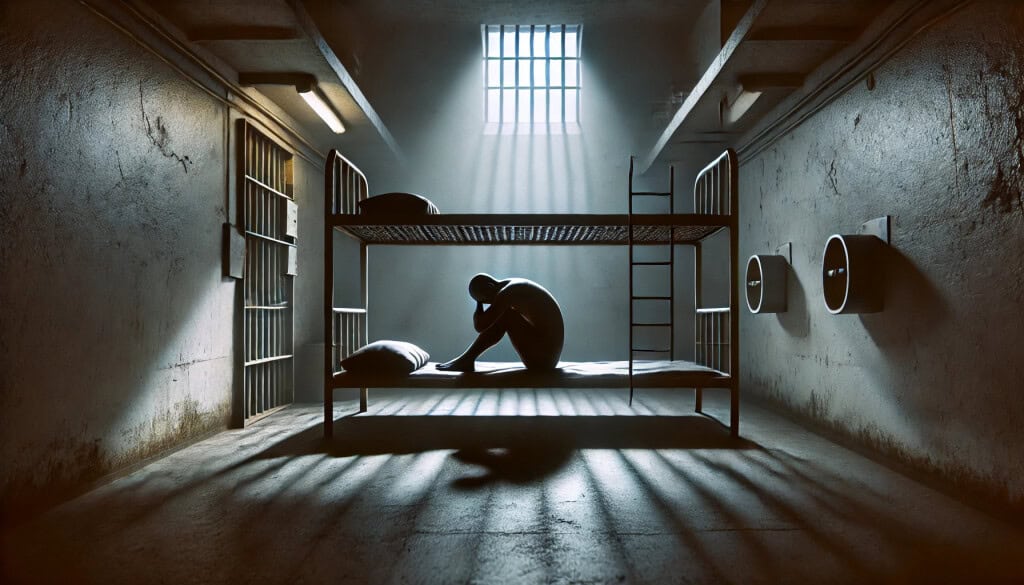
Inside Georgia’s prisons, violence is not an occasional outburst—it is a constant, looming threat. For many inmates, survival depends on navigating a deadly power dynamic between gangs, understaffed correctional officers, and a system that turns a blind eye to brutality.
Aaron Smith’s death at Telfair State Prison is a grim example. Found stabbed in his cell, Aaron’s death was part of a disturbing trend of unchecked violence. Keith Samuel was killed at Ware State Prison under similar circumstances. These are not isolated incidents; they are part of an epidemic of homicides that has made Georgia’s prisons among the deadliest in the nation. Between 2021 and 2024, the homicide rate in Georgia prisons more than doubled, with over 100 inmates killed.
For others, like a probation violator who entered Jackson State Prison with just months to serve, the violence is as sudden as it is fatal. “He got killed right beside me,” said a former inmate who witnessed the incident. “There was nothing I could do but keep my mouth shut because I didn’t want to get killed myself.” This pervasive fear forces inmates into silence, compounding the culture of violence and impunity.
Neglect and Torture
For Christian Krauch, violence took on a darker, more calculated form—weeks of torture left him with dozens of injuries, including broken bones, cigarette burns, and slashed feet. His story is a chilling reminder that Georgia prisons do not just house violence—they enable it.
Neglect is equally devastating. Almir Harris’s death from untreated diabetic ketoacidosis, after repeatedly being denied insulin, highlights the systemic indifference to medical care. Inmates with chronic conditions are often left to suffer without the medications or treatments they need, turning manageable illnesses into death sentences.
The neglect extends to basic living conditions. In one account, inmates reported being deliberately frozen in their dorm when a guard turned on the ventilators in freezing temperatures, leaving them to shiver through the night. Others spoke of being woken up multiple times during the night by guards banging on doors, not out of concern but to exert control. These acts of cruelty strip inmates of dignity and mental stability.
Solitary Confinement
For many inmates, solitary confinement is seen as the only escape from violence—yet it comes at a steep psychological cost. Danette Steele’s son spent over a year and a half in solitary confinement at Valdosta State Prison to protect himself from being attacked. He entered prison weighing nearly 300 pounds and left weighing just 139. By the time he was released, he was battling a drug addiction developed from being fed drugs by prison staff.
Solitary confinement exacerbates mental health issues, leaving inmates isolated and traumatized. It is not a solution to violence but a method of suppression that deepens the damage inflicted by an already broken system.
Lack of Rehabilitation
Rehabilitation in Georgia prisons is a cruel mirage. Rather than being prepared for reintegration into society, inmates are often released more broken than when they entered. Steele’s son, for example, was thrust back into society without any support or resources to address his addiction or trauma. Within days, he found himself in trouble again, a victim of a system that sets inmates up for failure.
Another inmate recounted being handed a knife by a guard on his first day in prison, a stark indication of how violence and survival are prioritized over education or skill-building. When violence is the norm, and safety is an illusion, rehabilitation becomes impossible.
For the families of incarcerated individuals, the suffering does not stop at the prison gates. Mothers, fathers, siblings, and children bear the heavy burden of knowing their loved ones are subjected to inhumane conditions, violence, and neglect.
The Ripple Effect: Impact on Families
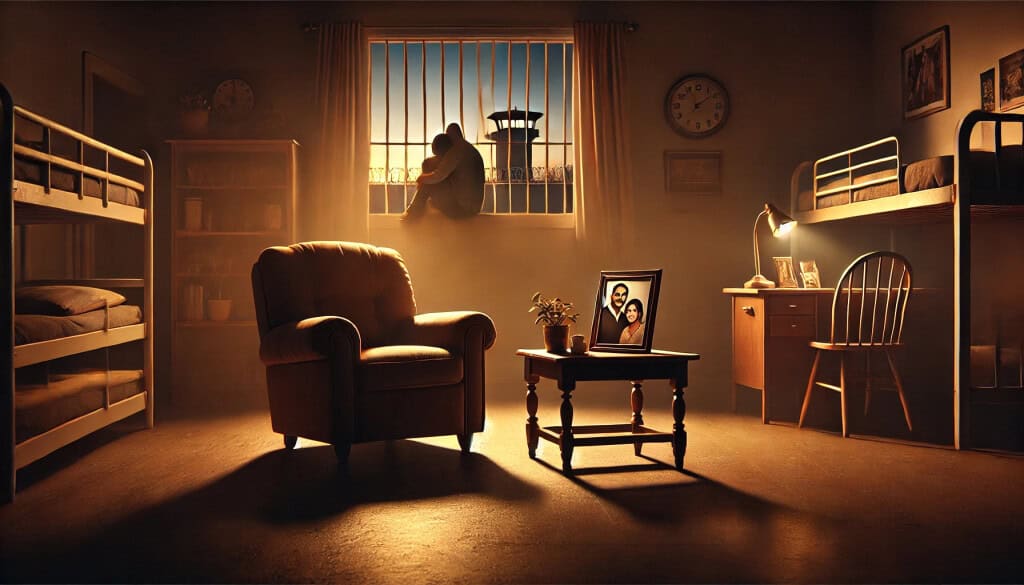
The Emotional Toll
Lisa Lewis-Spradlin’s letter about her son, Charles Tristan McKee, is a heartbreaking example. After enduring seven years of abuse and neglect in a system meant to protect and rehabilitate, Charles was murdered in May 2022. His mother’s anguish is palpable as she recounts how prison staff knowingly placed him in a dorm where they were aware his life was at risk. “These actions are not mere oversights—they crossed a line into criminality,” she wrote. Her plea for justice is echoed by countless families who have lost loved ones to the systemic failures of the Georgia Department of Corrections (GDC).
Teresa Lester Sisson’s story offers another perspective. After her brother’s death at Dooly State Prison, she has been left with unanswered questions and conflicting reports about his burial. Was his grave marked, or was he one of the 10 unmarked graves reported by an insider? The emotional toll of not knowing—and the systemic indifference to providing closure—has left her questioning the very humanity of those in charge.
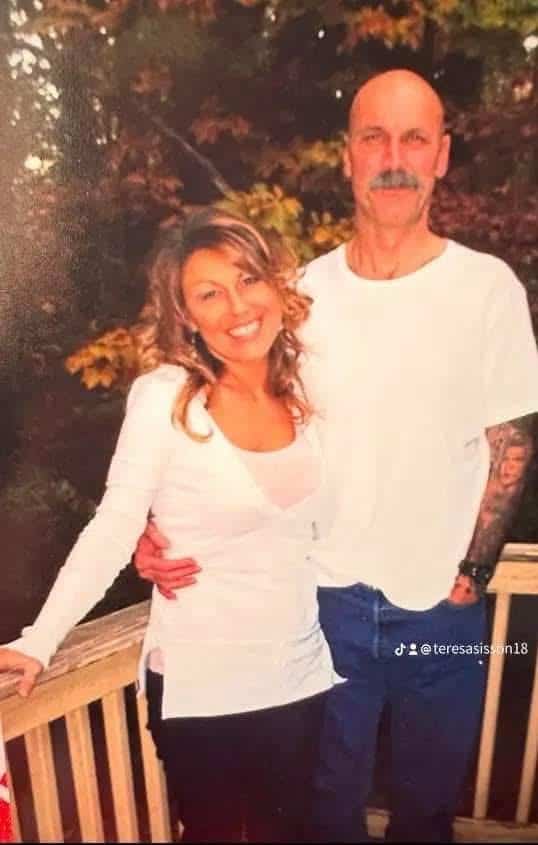
Financial and Legal Struggles
The financial burden on families is another layer of hardship. From hiring lawyers to advocating for investigations, families often spend thousands of dollars seeking justice for their loved ones. For many, like Monique Monte, the fight begins long before their loved one’s death.
Monique’s son, Almir Harris, struggled with autism and type 1 diabetes, conditions that required constant care. Despite her relentless efforts to advocate for him, Almir died from medical neglect. “No individual, regardless of their circumstances, should be subjected to such cruel and life-threatening treatment,” Monique wrote in a desperate plea for help. Her fight for justice continues, but it comes at a significant emotional and financial cost.
For Danette Steele, the struggle didn’t end when her son was released from Valdosta State Prison. His addiction, developed during incarceration, left her scrambling to find detox facilities and support. The system failed to provide any post-release resources, forcing her to shoulder the responsibility alone.
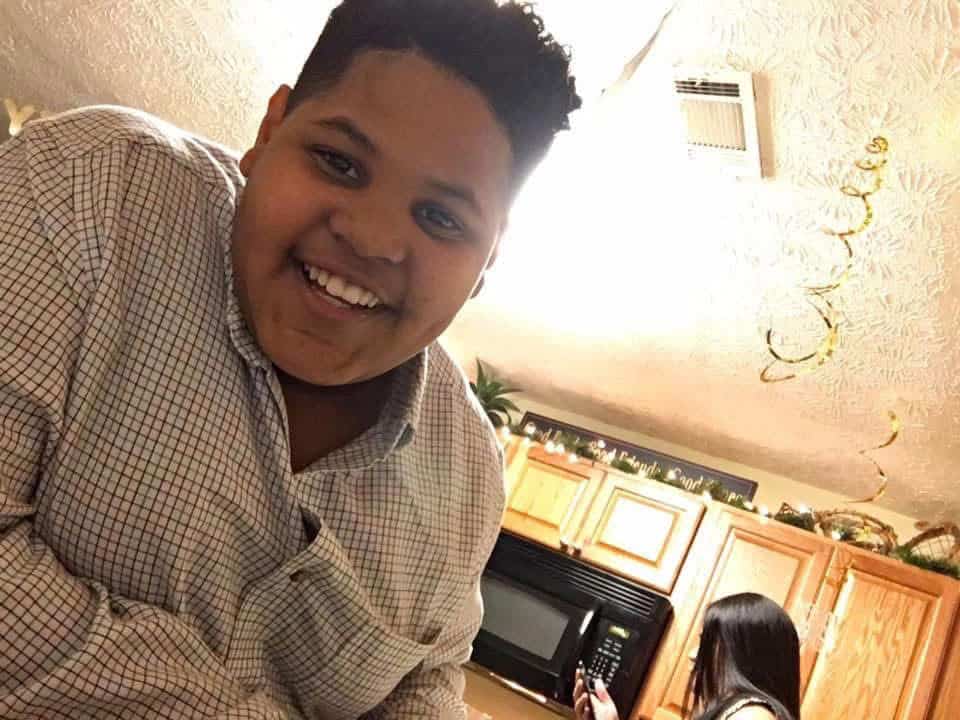

Social Isolation and Stigma
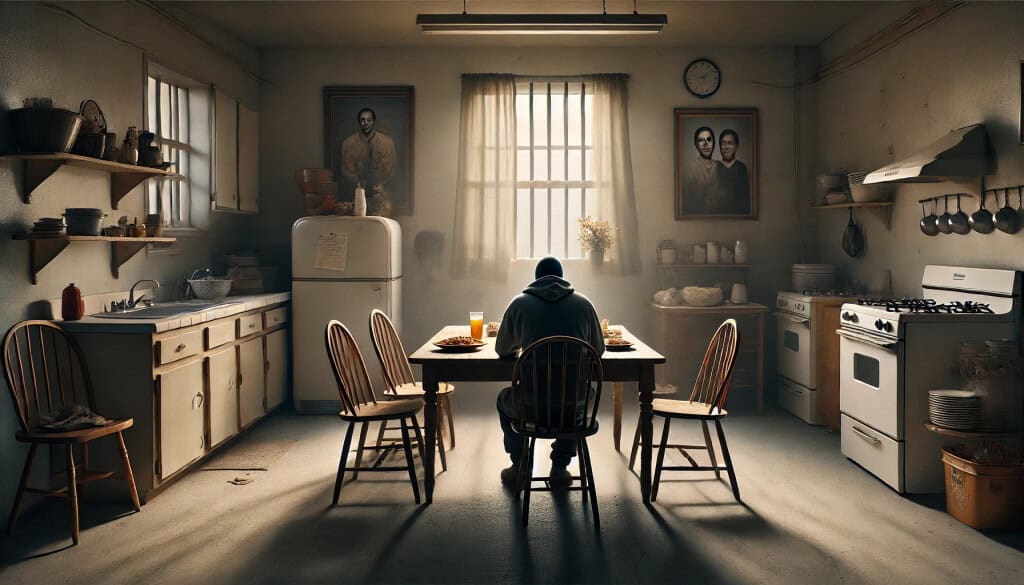
Families of incarcerated individuals often find themselves isolated and judged by society. The stigma surrounding incarceration means that many are reluctant to share their struggles, leaving them to navigate their pain in silence.
A poignant example of this isolation comes from a mother’s poetic reflection on losing her child to the prison system. “You just want someone to mention his name,” she wrote, capturing the profound loneliness and longing for acknowledgment. Families are not just grieving their loved ones; they are grieving a system that has dehumanized them.
The ripple effects extend to children, who grow up with an incarcerated parent and face stigma and emotional trauma. Entire communities are impacted, as the cycle of incarceration and neglect perpetuates generational harm.
Systemic Failures
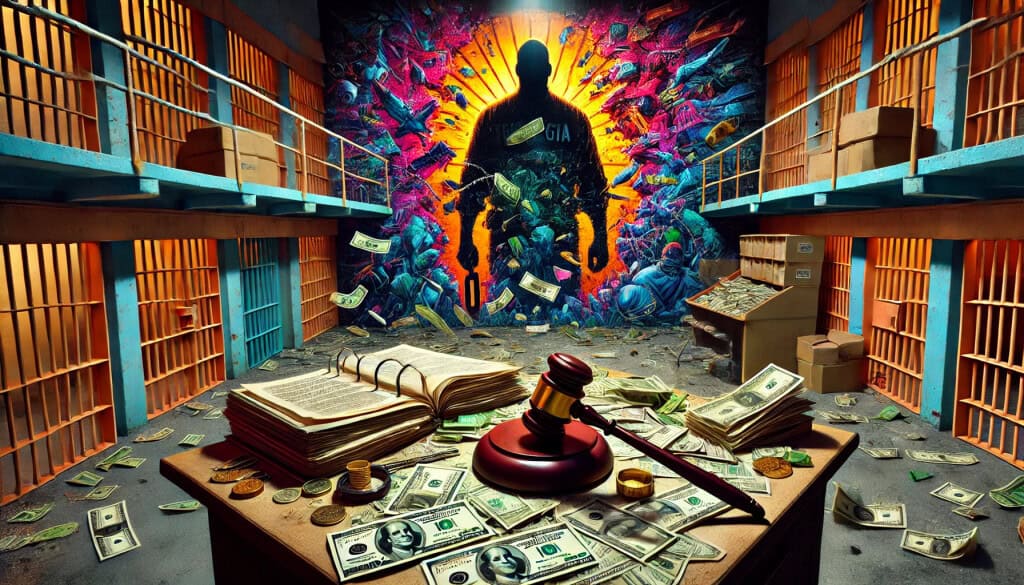
Corruption and Deception
At the heart of the Georgia Department of Corrections’ (GDC) failure is a culture of corruption and deception. From falsified records to blatant obfuscation of violence, the system actively conceals the truth about life behind bars.
A 2024 investigation by the U.S. Department of Justice revealed how the GDC routinely misrepresents inmate deaths, often attributing homicides and torture to “natural causes” or “suicides.” Families are left with more questions than answers, as in the case of Teresa Lester Sisson, who is still unsure whether her brother’s grave is even marked. These actions are not just negligent—they are deliberate attempts to shield the institution from accountability.
The lack of transparency extends to public access. Prison officials have increasingly restricted information, withholding incident reports and barring families from accessing critical details about their loved ones. This deliberate withholding of information allows violence, neglect, and abuse to flourish unchecked.
Chronic Understaffing and Mismanagement
One of the most glaring systemic failures is chronic understaffing. The DOJ report highlighted that many prisons in Georgia operate with less than half the required staff, creating an environment where violence and neglect thrive. Guards are outnumbered, poorly trained, and, in many cases, complicit in the violence.
In Valdosta State Prison, Danette Steele’s son described how guards fed inmates drugs and facilitated beatings and rapes. “The warden and his employees allowed this to happen,” she said. This complicity transforms prisons into lawless spaces where survival often depends on aligning with gangs or retreating into solitary confinement.
The consequences of understaffing are stark: delayed medical responses, unchecked gang activity, and preventable deaths. Guards often prioritize controlling contraband cellphones over protecting inmates’ lives, as seen in the case of Aaron Smith, who was stabbed to death at Telfair State Prison while officials turned a blind eye to the escalating violence.
Misplaced Priorities
While Georgia prisons crumble under the weight of violence and neglect, the GDC continues to focus on the wrong issues. Contraband cellphones, often the only lifeline for inmates to report abuses or stay connected with their families, have become the department’s scapegoat for systemic problems. Instead of addressing understaffing, corruption, or inadequate healthcare, the GDC diverts its limited resources to combating cellphones.
This misplaced focus reflects a broader societal failure to prioritize humanity over control. As one observer noted, “We built cameras, prisons, drones, bombs, and barbed wire fences instead of hospitals, schools, daycares, playgrounds, and water treatment plants. Our priorities are fucked.” The GDC’s actions epitomize this misalignment, where incarceration is prioritized over rehabilitation, and punishment is valued more than human dignity.
The Cost of Inaction
The systemic failures within the GDC are not just moral failures—they are costly. Wellpath, the GDC’s former medical provider, terminated its contract in 2023 after incurring $30 million in unanticipated costs, largely from treating trauma caused by prison violence. Taxpayers are footing the bill for a broken system, with no return on investment in terms of public safety or rehabilitation.
Despite the staggering human and financial cost, the GDC continues to resist meaningful reform. The cycle of neglect and violence persists, leaving inmates and their families to bear the brunt of the department’s failures.
The Call for Change
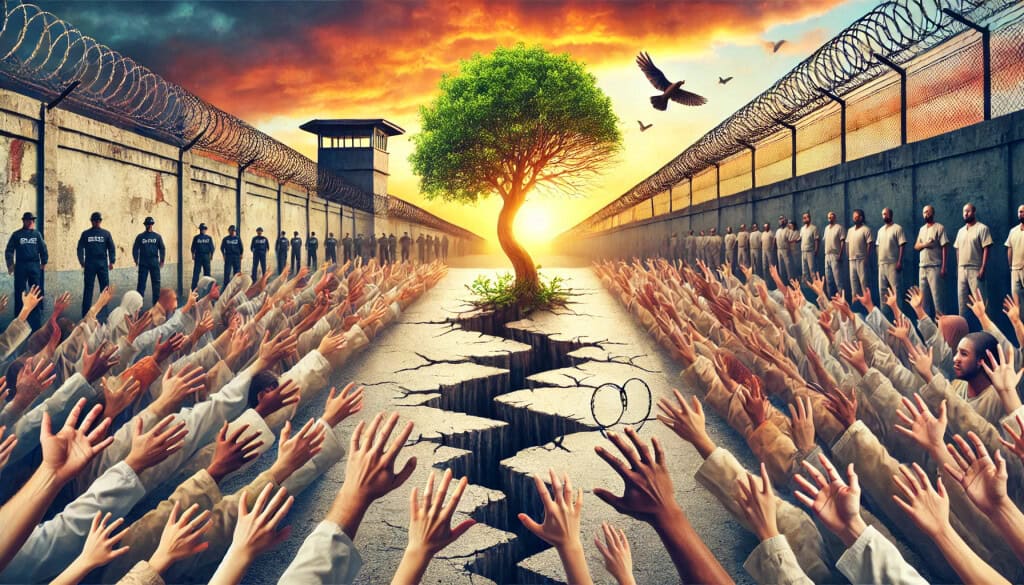
Advocacy and Resistance
In the face of systemic failure and unchecked brutality, families, activists, and advocacy groups are fighting back. Organizations like the Human and Civil Rights Coalition of Georgia are amplifying the voices of those who have suffered at the hands of the Georgia Department of Corrections (GDC). Their mission is clear: demand accountability, reform, and justice for those who have been silenced.
Monique Monte, the mother of Almir Harris, has become a vocal advocate for change. After her son’s death due to medical neglect, she vowed to continue fighting—not just for her son but for all families impacted by the system. “We must demand better,” she said in her public plea. Her story serves as both a rallying cry and a reminder of the power of resilience in the face of grief.
Social media platforms have become vital tools for advocacy, allowing families to share their stories and expose the horrors of life behind bars. Posts from individuals like Teresa Lester Sisson and Danette Steele have gained traction, sparking public outrage and calls for reform. These voices are no longer isolated—they are part of a growing chorus demanding that Georgia’s prisons be held accountable.
Proposed Reforms
The solutions are clear and achievable, but they require political will and sustained public pressure. Advocates are calling for:
Transparency:
• Mandate that the GDC publicly report all inmate deaths, including their causes and circumstances, without obfuscation or delay.
• Grant independent oversight bodies access to investigate claims of abuse, neglect, and violence.
Independent Oversight:
• Create an independent commission to oversee the GDC, with the authority to investigate complaints, recommend policy changes, and hold leadership accountable.
Healthcare Reform:
• Require prisons to meet minimum standards for medical and mental health care.
• Ensure independent audits of healthcare providers and address staffing shortages that prevent timely care.
Reducing Violence:
• Increase staffing levels and improve training for correctional officers, with a focus on de-escalation techniques and inmate safety.
• Address gang control by targeting systemic corruption and providing safe housing options for vulnerable inmates.
Rehabilitation and Reentry Support:
• Shift resources toward educational and vocational programs that prepare inmates for life after incarceration.
• Provide post-release support, including mental health counseling and addiction treatment, to reduce recidivism.
Broader Implications
The problems within the GDC are not unique to Georgia—they are emblematic of a nationwide crisis in the criminal justice system. By addressing these systemic issues, Georgia has the opportunity to become a model for reform, showing that it is possible to balance public safety with human dignity.
These reforms are not just a moral imperative—they are an economic one. The cost of inaction is already evident in the rising healthcare expenses, legal settlements, and repeated failures of the GDC. Investing in transparency, oversight, and rehabilitation is not only humane but fiscally responsible.
The Role of the Public
Public awareness and pressure are essential to driving change. Advocacy groups can only succeed if they are supported by a broad coalition of concerned citizens, lawmakers, and community leaders. The stories of inmates like Christian Krauch and Almir Harris, and the grief of families like Lisa Lewis-Spradlin and Teresa Lester Sisson, should galvanize public outrage and demand for action.
The court of public opinion is powerful. Families, activists, and organizations must continue to push for justice, reminding lawmakers that their constituents demand a system that values humanity over punishment.
Conclusion
The stories from inside Georgia’s prison system are not just statistics or distant headlines—they are the lived realities of thousands of people whose lives have been irrevocably scarred by violence, neglect, and systemic failure. For those on the inside, survival comes at the cost of enduring brutality, isolation, and the loss of dignity. For their families, the pain is enduring, as they fight for answers, accountability, and justice.
These stories demand more than sympathy; they demand action. The Georgia Department of Corrections (GDC) has operated unchecked for far too long, leaving a trail of human suffering in its wake. Reform is not just a moral imperative—it is a necessity for a society that claims to value justice and humanity.
The path forward requires transparency, accountability, and investment in rehabilitation rather than punishment. Advocacy groups, families, and community leaders are already pushing for change, but they cannot do it alone. Public awareness and pressure are essential to ensure that these demands translate into tangible reforms.
We cannot afford to wait any longer. The lives lost and the suffering endured by those inside Georgia’s prisons are a stark reminder of what happens when a system prioritizes control over compassion. These stories are their legacy—a call to action for all of us to demand better, to hold our leaders accountable, and to build a system that reflects our shared humanity.
Now is the time to act. Let us ensure that these voices are heard and that their suffering is not in vain. Georgia’s prison system must change, and together, we have the power to make that happen.
Act Now
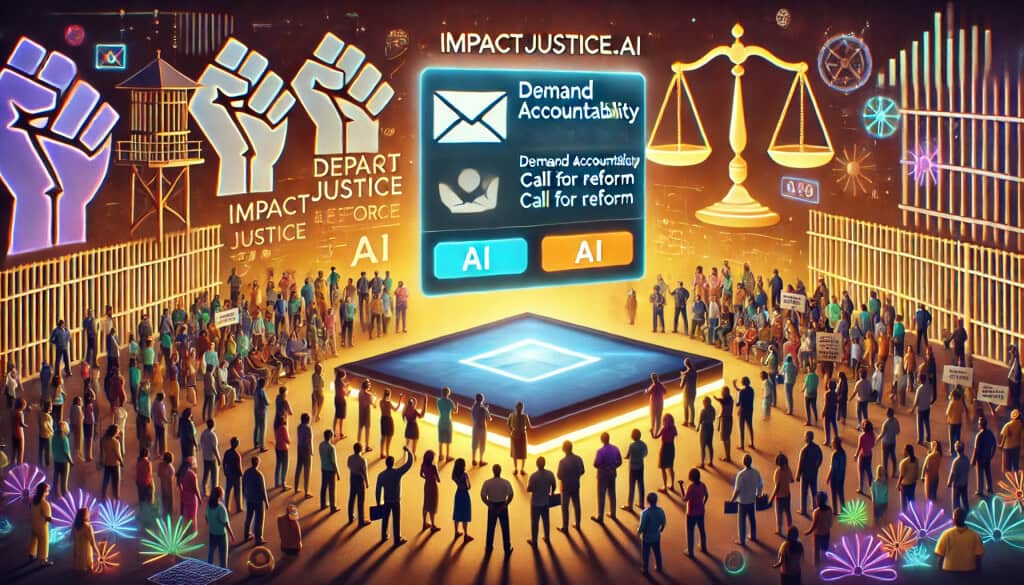
The stories from inside Georgia’s prison system paint a grim picture of neglect, brutality, and systemic failure. For inmates, survival often depends on enduring violence, isolation, and medical neglect. For their families, the impact ripples outward, leaving them to grapple with grief, unanswered questions, and the financial and emotional toll of seeking justice.
Yet, as bleak as this reality is, there is hope. Advocacy and public awareness have already begun to expose the depth of these issues, pressuring the Georgia Department of Corrections (GDC) and state officials to confront their failures. Families like those of Almir Harris and Christian Krauch are turning their pain into action, joining forces with organizations to demand transparency, accountability, and reform.
In the face of such overwhelming injustice, it can be difficult to know where to begin. This is where ImpactJustice.AI comes in.
ImpactJustice.AI is revolutionizing the way we advocate for change. This powerful, AI-driven tool enables anyone to craft persuasive, evidence-based emails that amplify the call for humane conditions in Georgia’s prisons. Drawing on evidence from the DOJ report, investigative journalism, and user-selected topics, the system creates messages tailored to government officials, media outlets, and other decision-makers.
With just a few clicks, you can transform your outrage, your grief, or your hope into action. Whether you’re a mother seeking justice for a lost child, an advocate fighting for reform, or a concerned citizen demanding accountability, ImpactJustice.AI ensures that your voice reaches the people who can make a difference.
The power of this tool lies in its ability to combine personal perspectives with hard evidence, creating messages that are not only compelling but impossible to ignore. By using ImpactJustice.AI, you can join a growing movement of individuals and organizations dedicated to holding the GDC accountable and demanding systemic change.
The stories of those lost to Georgia’s prison system cannot be undone, but they can inspire a new era of justice and reform. Together, through tools like ImpactJustice.AI and the collective determination of advocates across the state, we can turn outrage into action and ensure that no more lives are needlessly lost or destroyed.
The time to act is now. Let’s make sure these stories are not forgotten—and that they lead to the change Georgia so desperately needs.
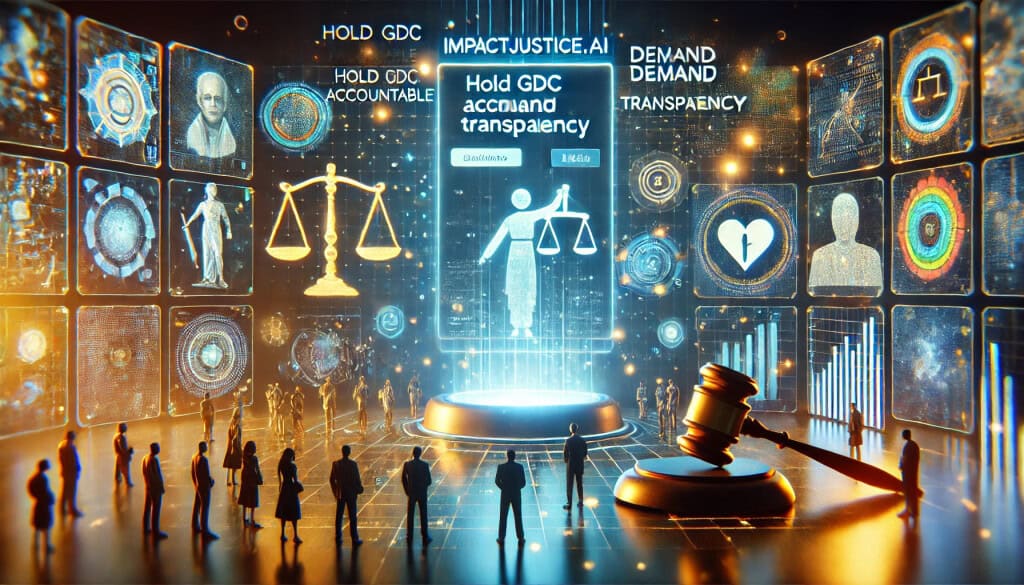
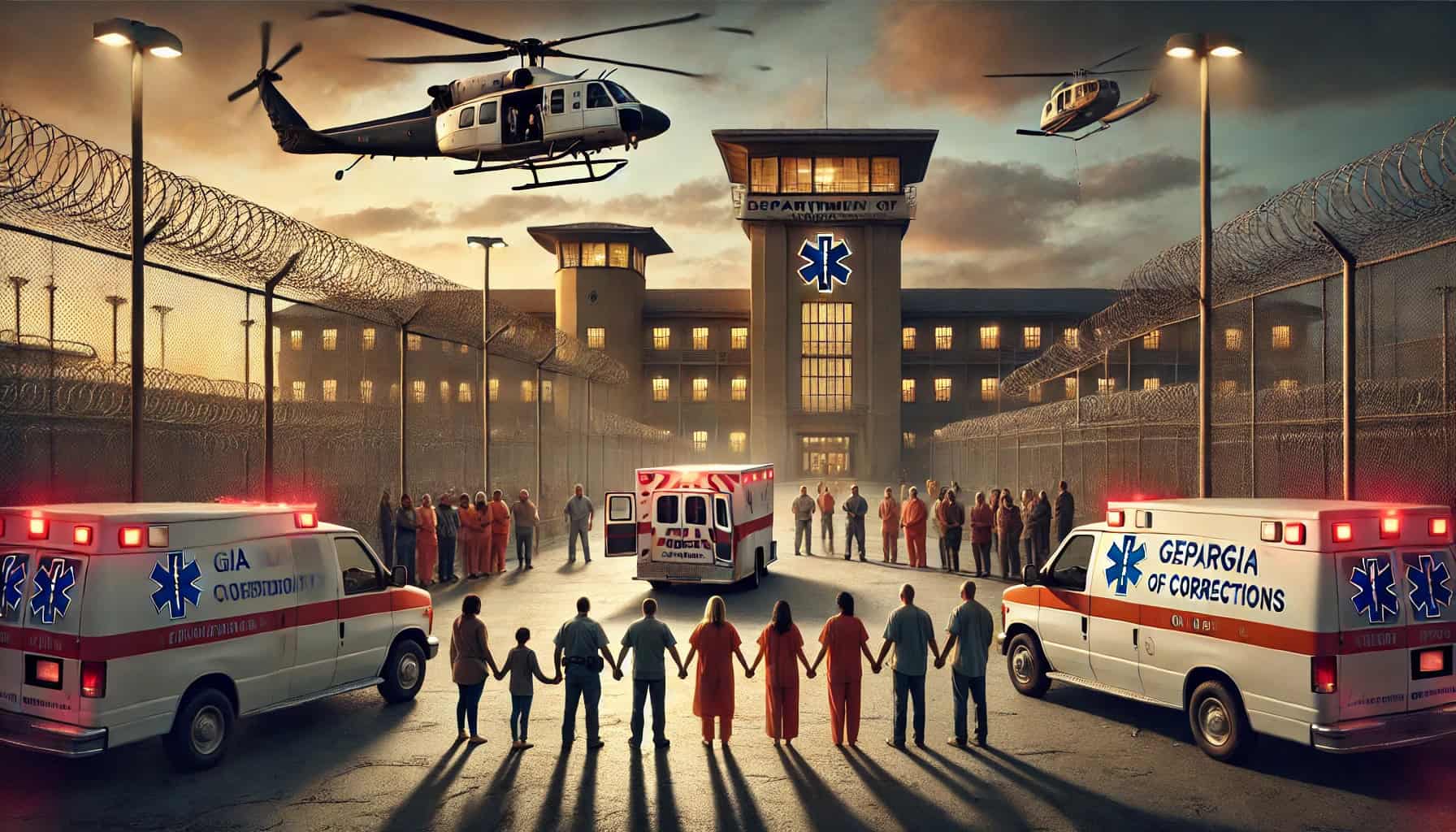
6 thoughts on “In and Out: The Lives Destroyed by the GDC”